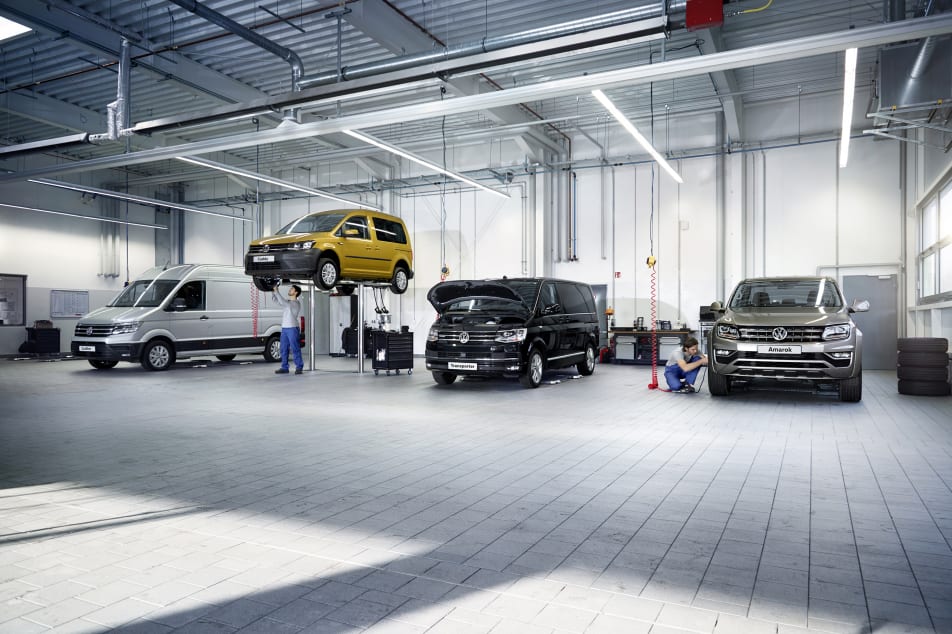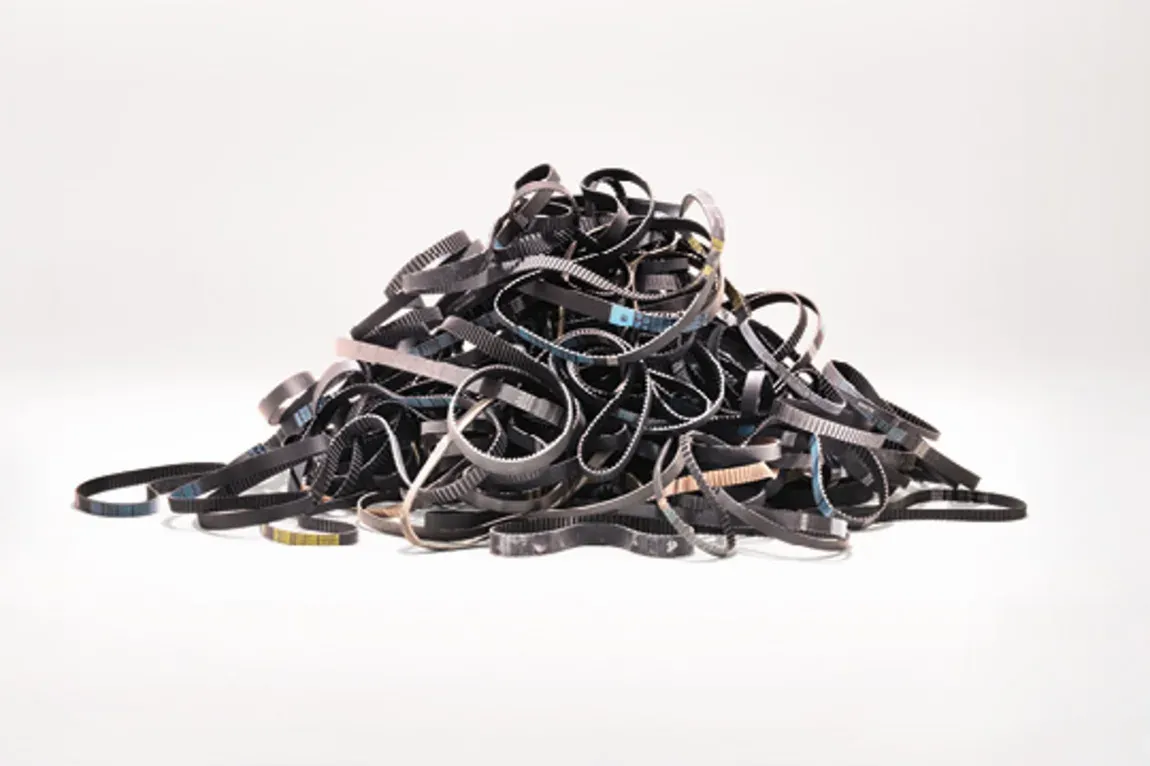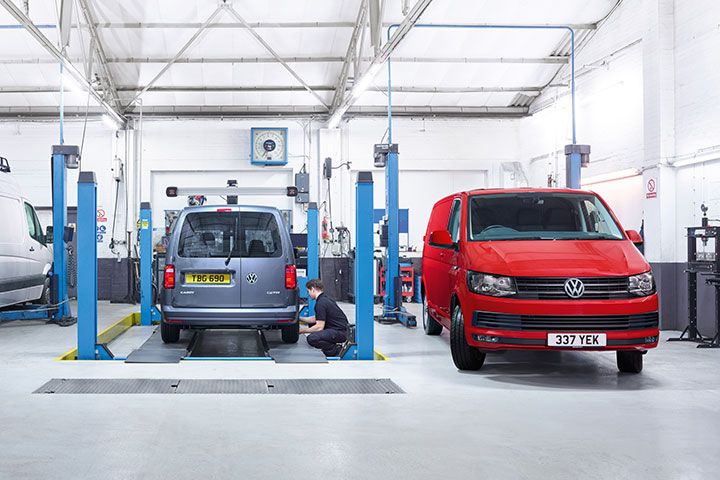Keep your VW wheels turning with our latest van maintenance offers
Available on vehicles over 3 years old at participating Van Centres
Oil and Inspection Service (inc. VAT) | Oil and Inspection Service with Supplementary Scope (inc. VAT) | Oil and Inspection Service with Pollen Filter (inc. VAT) | |
|---|---|---|---|
Caddy | £220 | £285 | £265 |
Transporter | £220 | £285 | £283 |
Amarok | £220 | £285 | £265 |
Crafter | £220 | £285 | £268 |
Here at Swansway Motor Group we've put together a list of our top three pointers to keep your van running just as it should.
1. Making you stop
We all realise that the brakes are the most important safety feature of our vehicle, but when we think of our brakes, we tend to think of the discs and pads and not the brake fluid. But, brake fluid has a very hard life, it has to withstand operating temperatures of up to 230°C and as time passes it absorbs water which, of course, boils at 100°C. As the water boils, it changes into compressible vapour, meaning your brakes just won’t work efficiently.
There’s nothing that can be done to prevent your brake fluid absorbing water over time, so it must be replaced every 2 years, regardless of your mileage.
Left too long without changing, excessive moisture will build up and the brake fluid can then boil, now your braking performance will be seriously affected; your brakes may even fail. If your brake pedal is feeling spongy, then this is already happening and you must have your brake fluid changed.
When we replace your brake fluid, we check for leaks first, before draining the system and re-filling it with manufacturer approved fluid. We record the brake fluid change for you digitally and/or in your service book; and of course, we make sure that we dispose of your old brake fluid responsibly.


2. Keep your cool
We all take our air-con system for granted these days, enjoying the benefits of cooler, fresher air in our passenger cabin. Vehicle air-con systems don’t just make the air cooler, they also remove the moisture content making the air less humid and sticky feeling.
So, it’s a great system, but one of its main components disappears at the rate of 10% a year! The refrigerant gas dissipates and if you don’t take care of your air-con and replace the lost gas, then your system will become less and less able to keep you cool and refreshed.
Not only that, as the system continues to lose gas, it becomes less and less efficient which leads to increased fuel consumption, something we all try to avoid. If you neglect your air-con then it will eventually fail, needing replacement parts and costing you more.
To keep your air-con working properly and performing economically, we perform an air-con service; we drain and re-gas the system; disinfect it; check hoses, filters, belts and connections to ensure there are no little splits where the gas can leak out and finally we check the performance of the compressor and condenser.
3. Timing is everything
When you hear talk of the necessity of changing your cambelt, you may well be asking yourself what is a cambelt and why does it need to be changed.
The cambelt used to be known as the timing belt, which better explains its role; it joins major parts of your engine, the crankshaft and camshaft/s, which control the opening and closing of the valves, the timing of which is crucial to your engine’s performance, hence the name timing belt.
A rubber-toothed belt, it’s one of the hardest working components in your engine keeping everything synchronised. Because it works so hard, it can become worn or damaged; changing it prevents snaps, cracks and tears which will greatly reduce the risk of major engine damage.
Each manufacturer will recommend the age, or mileage, which is the optimum for changing your cambelt; of course, if it’s excessively worn, cracked or has become oily, then we’d recommend you change it sooner.
If you put off changing your cambelt, then you could cost yourself £1,000s, as the belt can go slack, which then causes it to jump or snap and this then causes severe damage inside your engine.

When we renew your cambelt, we also replace the cambelt tensioner, then we reassemble your engine and road-test your vehicle. Finally we record the cambelt change for you digitally and/or in your service book.
At Swansway, all of our dealerships offer a free vehicle health check, where our trained Technicians will examine your van and come back to you with any potential problems and how to address them. Yours and your vehicle’s safety are own top priority, so if you have any questions at all regarding your warning lights then please do give us a call. We’ll talk you through it.
Book a service
Pricing correct as of Jan 2024
